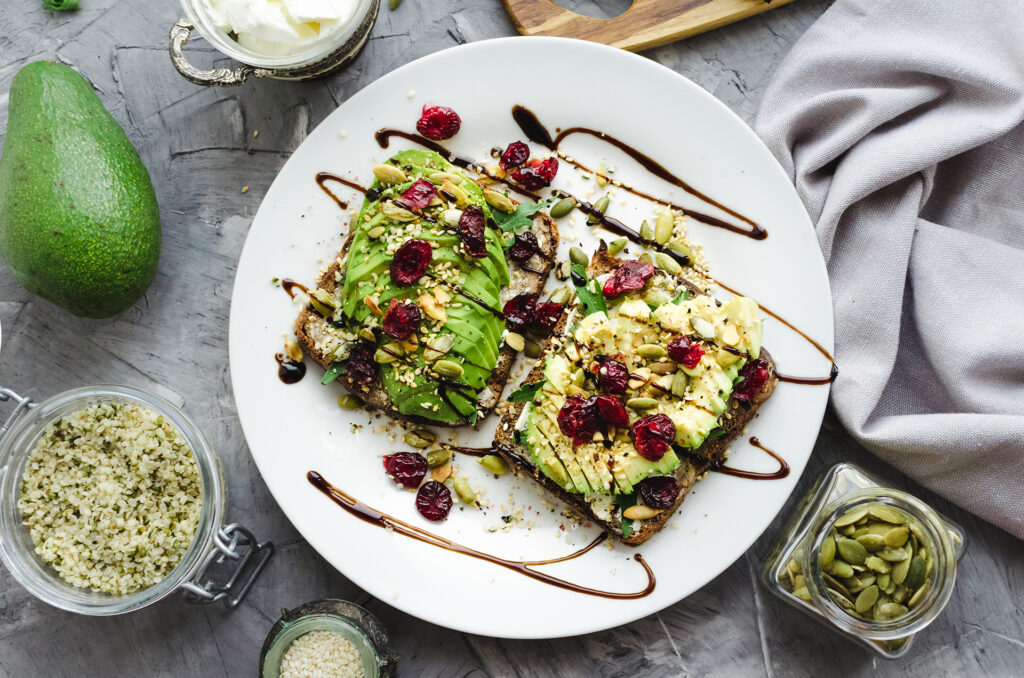6 Tips To Better Gut Health

The gut is one of the most important organs in the body so keeping it healthy is crucial to our overall wellbeing. Learning to look after your gut has huge benefits, The gut has the power to impact everything, from our mood to immunity and weight, so it’s vital to give it the love and attention it deserves.
As well as having its own ‘brain’, which contains 150 million nerve cells, the gut is also home to trillions of bacteria that play a vital role in providing essential nutrients, tuning the immune system and even altering the function of the brain and other distant parts of the body. The gut can influence our mental health and mood, due to a direct link between the gut and the brain, called the gut-brain axis.
Jo Travers, Registered Dietitian for Love Your Gut Week (19th-25th September 2022), explains: “The gut and the brain ‘talk’ to each other on a regular basis using special chemical messengers produced by the bacteria that lives in our gut. Among these we can find dopamine and serotonin – also known as happiness or ‘feel good’ hormones.
“Although gut-brain axis communication is two-way, over 80% of the messages are sent from the gut to the brain, rather than the other way round. However, if conditions are less favourable in either place, then this can affect the other.
“The health of our gut has an impact not only our digestion, but also our immune system and weight management – so with a little nurturing, the gut will not only aid your mental health, but your physical health too.”
To help everyone look after their gut health this Love Your Gut Week, and beyond, Jo has shared her top six tips:
Support Your Immunity
There is a strong link between gut health and the immune system. The bacteria in our gut ‘teach’ our immune systems what is harmful and what isn’t. This helps make sure the immune system doesn’t overreact when exposed to antigens and keeps inflammation in check. This important bacteria thrives when we eat plenty of plant fibre; get some exercise; sleep well and manage our stress.
Eat 30 plant points a week
A varied gut microbiota is associated with better health. To keep the bacteria thriving, you need to feed them well. A study found that people who eat 30 or more different plant foods each week are likely to have a much more varied gut microbiota than those who eat 10 or less. To up your intake of plant-based foods, try adopting new habits such as swapping to whole meal pasta when cooking, adding an extra portion of veg to your plate or snacking on nuts and seeds.
Get enough sleep
Sufficient sleep is something everyone needs, and depriving ourselves of sleep can disrupt the communication between our gut and brain. The bacteria in the gut directly communicate with the central nervous system and disrupted sleep can affect the levels of bacteria in the gut.
Manage stress
Stress – physical or psychological – triggers a chain reaction in the body, including the production of the stress hormone cortisol, which can cause dysregulation of the communication pathways between the gut and the brain (the gut-brain axis).
This can mean changes to blood flow and secretions in the gut, which may create better conditions for pathological bacteria and inhibit the growth of some helpful bacteria. It can also affect the movement of food through the gut and result in either constipation or diarrhoea.
Get into nature
Did you know that just coming into contract with the great outdoors is enough to influence our gut bacteria? Microscopic airborne particles are colonised by a variety of bacteria that make their way into us via the air we breathe. One of my favourite ways to take advantage of the outdoors is by gardening, as science shows that exposure to green spaces and outdoor sunlight, including our own gardens, has proved successful at improving mental wellbeing, reducing depression and anxiety symptoms, while also having a positive effect on stress reduction.
Keep track of what you eat and drink
An easy way to monitor your gut health is by tracking what you eat and drink, and cross referencing with any symptoms you may experience. A simple way to do this is by keeping a food and symptoms diary, where you can keep note of the food and drink you consume, alongside symptoms, and then share this with your GP or dietitian, who will be able to help identify any triggers.
For further information on Love Your Gut Week, as well as access to helpful resources and delicious doctor-developed recipes, visit www.loveyourgut.com.









